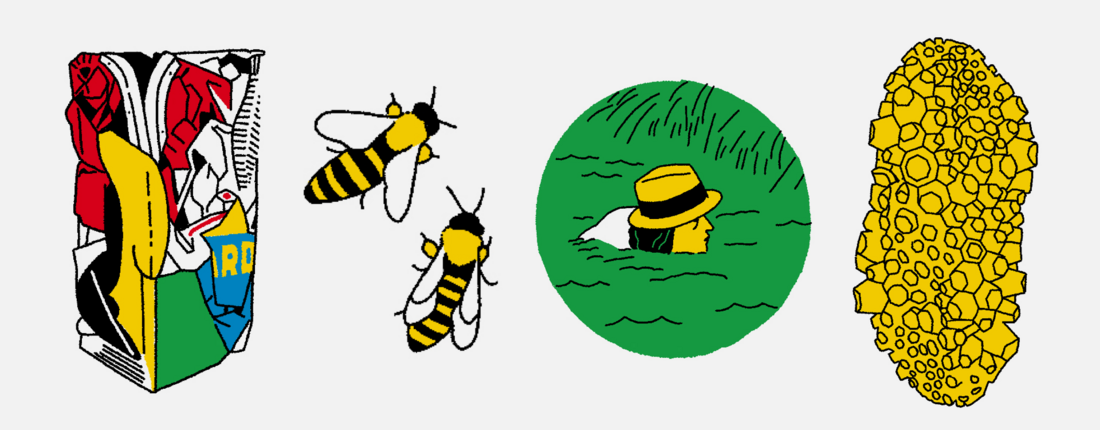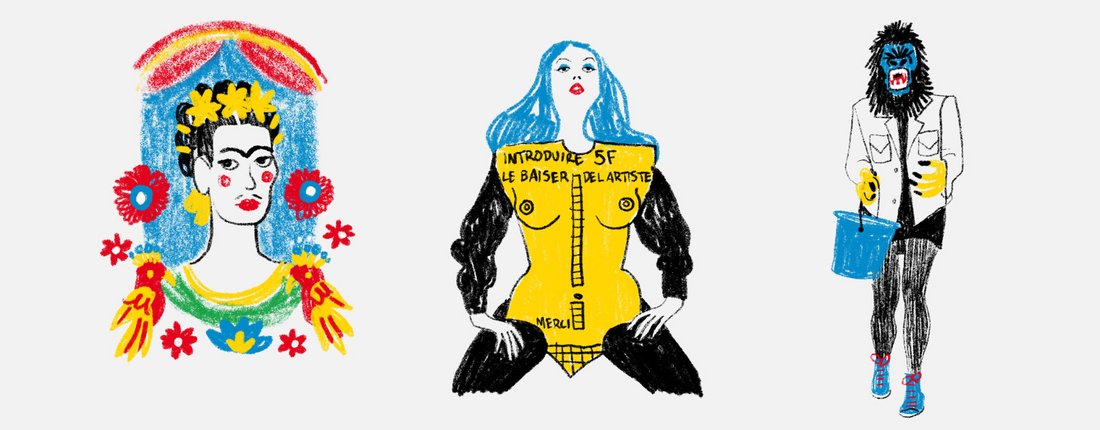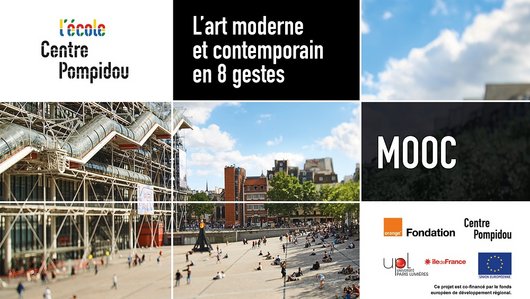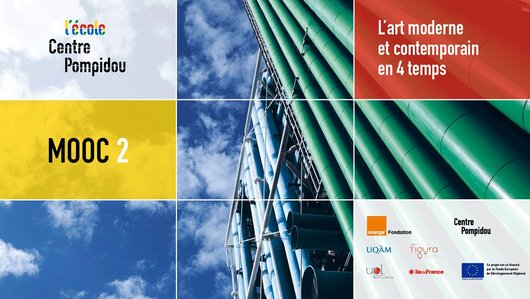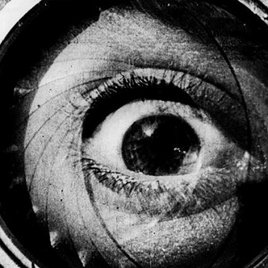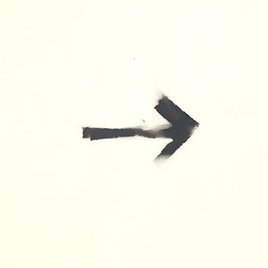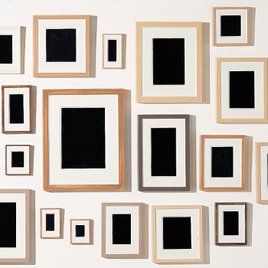MOOCs
Since 2017, the Centre Pompidou has offered a free introduction to modern and contemporary art that is accessible to all, through:
- MOOCs: online courses that are free and accessible to all;
- Conferences and masterclasses;
- Guided tours of the museum’s collections.
A lively and accessible interactive learning experience, both online and at the museum.
People can satisfy their curiosity by acquiring a solid grounding in the understanding of art, through themes that change every year.
MOOC Art & Ecology
After the success of the "Women in Arts" MOOC with more than 42,000 registrations in 2021, the Centre Pompidou is offering an Art & Ecology MOOC starting October 10, 2022. This free online course in 5 sequence is open to all and proposes a thematic path presenting the different ecological practices at work among artists from 1960 to the present day.
From recovering and recycling to a new look at the living, from involvement in artistic and militant performances to the emergence of another perception of the act of creation, environmental issues have crossed the approach of many artists since the 1960s and now occupy a decisive place, helping to redefine the very horizon of contemporary art.
Based on the collections of the National Museum of Modern Art, the specialists will draw up an inventory of the ecology of contemporary art.
Find all the videos from the MOOC, as well as additional resources,
in our playlist "Art & Ecology"
(in French)
MOOC Female artistic creation
In January 2021, the Centre Pompidou will broadcast a new MOOC dedicated to female artists.
Through this online course, the Centre Pompidou’s aim is to write a new page in the history of art, to recognise the legitimate place of female artists into history, and to support their presence in today’s cultural world. Indeed, despite two waves of feminist movements – and a third which is underway – aiming to establish equality between men and women, feminism is not yet firmly rooted in our society, the history of art and culture.
This MOOC will come accompany the thematic exhibition "female artists and abstraction", which will open in May 2021 at the Centre Pompidou.
MOOC Pop Art
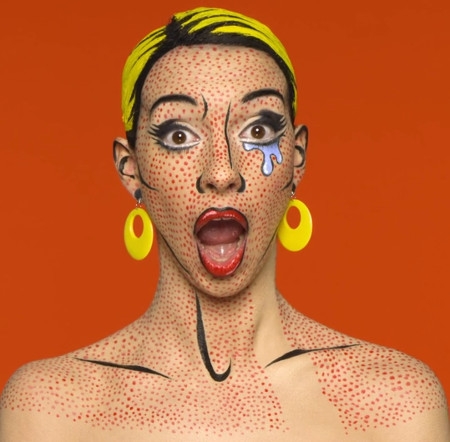
Pop Art changed the world – influencing fields as diverse as graphic design, philosophy, music, and advertising. But how did Pop Art really begin? And what do we know about its most famous artists, Andy Warhol and Roy Lichtenstein?
MOOC outline:
- Introduction
- Sequence 1: The Pop Art phenomenon
- Sequence 2: The Pop constellation
Find all the videos from the MOOC, as well as additional resources,
in our playlist "Pop Art"
(in French)
How are artworks created? What movements and actions do artists perform when creating them?
You can (re)discover this theme in the MOOC, which revolves around eight common verbs – eight keys to understanding present-day art: slow down, ritualise, assemble, criticise, destroy, reproduce, invent, reduce.
MOOC outline:
- Sequence 1: Introduction
- Sequence 2: Slow down
- Sequence 3: Ritualise
- Sequence 4: Assemble
- Sequence 5: Criticise
- Sequence 6: Destroy
- Sequence 7: Reproduce
- Sequence 8: Invent
- Sequence 9: Reduce
- Sequence 10: Conclusion
Register to the MOOC L'art moderne et contemporain en 8 gestes
(in French)
In this MOOC, curators of the Musée National d'Art Moderne and their guests explore time, rhythm and definitions. How do modern and contemporary artists represent this universal theme? How can time be shaped, filmed and displayed? How has time become a theme for visual artists? The notion of time is explored through four verbs: Last, repeat, punctuate and walk.
MOOC outline:
- Introduction
- Sequence 1: Last
- Sequence 2: Repeat
- Sequence 3: Punctuate
- Sequence 4: Walk
- Conclusion
Register to the MOOC L'art moderne et contemporain en 4 temps
(in French)
